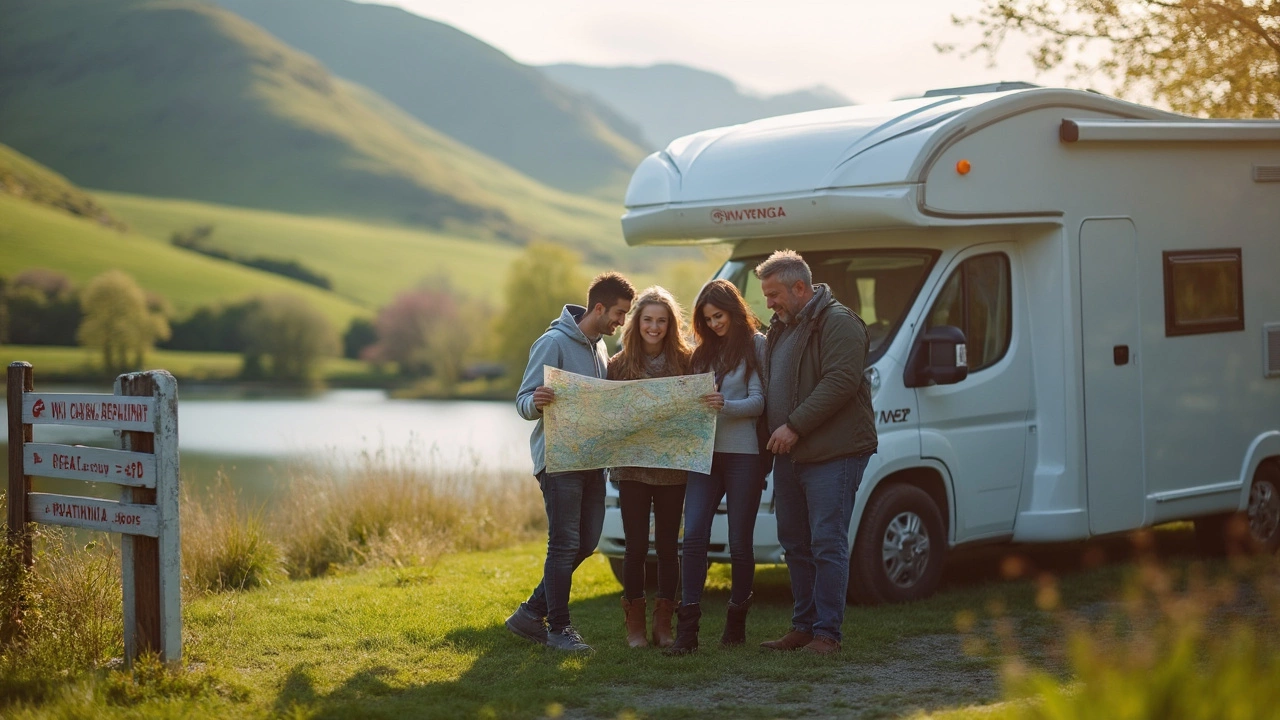Rent an RV in the UK: Your Quick Guide to a Stress‑Free Motorhome Holiday
Thinking about hitting the road in a motorhome? Whether it’s a weekend getaway or a two‑week adventure, renting an RV can be a great way to explore Nottinghamshire and the rest of the UK without the hassle of ownership. This guide pulls together the most useful facts from our blog – from budgeting basics to legal must‑knows – so you can book with confidence and enjoy the freedom of the open road.
How Much Does It Cost to Rent an RV?
Rental prices vary by size, season, and the type of vehicle you choose. A compact campervan can start at around £70‑£90 per night in the off‑peak months, while larger Class C motorhomes often range from £120‑£180 per night. Many providers offer weekly discounts, so a full week might cost roughly £600‑£900 for a mid‑size model.
Don’t forget extra fees: insurance, mileage limits, and optional gear like portable power stations. Our post on portable power stations breaks down sizing rules and cost math, helping you decide if a lithium backup unit is worth the extra £50‑£100. Adding it can keep your lights on, charge phones, and power a small fridge while you’re boondocking.
If you’re budgeting for a longer stay, compare the total monthly cost of full‑time RVing (see our “Is Full‑Time RVing Affordable in 2025?” guide) with traditional accommodation. Often, a month‑long rental plus campsite fees still beats a hotel suite in popular tourist spots.
Key Rules and Safety Tips while Driving a Motorhome
Driving a motorhome feels different from a car. First, always use the driver’s seat and any designated passenger seats – the law prohibits walking around the cabin while the vehicle is moving. Our article on motorhome laws explains that walking inside a moving RV can lead to fines and, more importantly, safety hazards.
Seat‑belt use is mandatory for every occupant, even on short trips. Children must be secured in approved child seats that meet UK standards. If you’re unsure where to sit, check the vehicle’s manual; most motorhomes have a passenger seat beside the driver and a rear bench that may have its own belt.
When it comes to campsite hookups, know which plug you need. The “What Plug Do I Need for a Campsite?” guide shows the three most common UK plugs (16A, 13A, and the European 2‑pin) and how to use an adapter safely. A proper connection prevents overloads and keeps your onboard batteries happy.
Plan your route ahead of time. Some narrow country lanes restrict vehicles over a certain height or width. Use a GPS that includes motorhome routes, and double‑check height clearances at bridges. If you’re heading to a forest site, remember the 2‑2‑2 rule (two people, two bags, two nights) to keep your stay simple and low‑impact.
Finally, keep an eye on your RV’s water and waste systems. Emptying the black water tank at a proper dump point avoids fines and keeps the environment clean. Our “Can You Use a Motorhome Toilet While Driving?” article gives practical advice on when it’s safe to flush and when you should hold off.
With these cost tips and legal basics in hand, you’re ready to book that RV and hit the road. From the rolling hills of the Peak District to the historic streets of Nottingham, a motorhome lets you travel on your own schedule. Pack light, drive safe, and enjoy the freedom that comes with renting an RV today.
